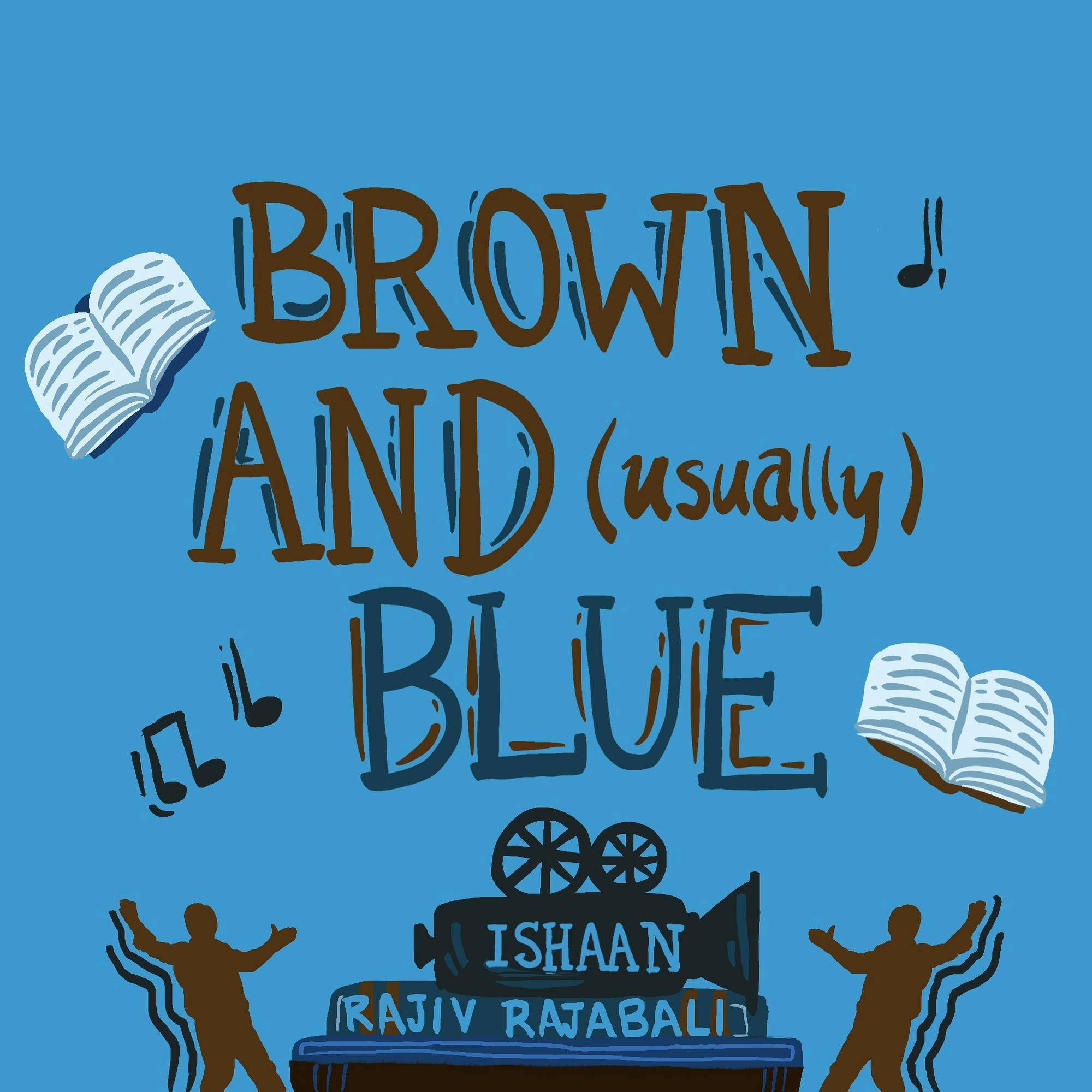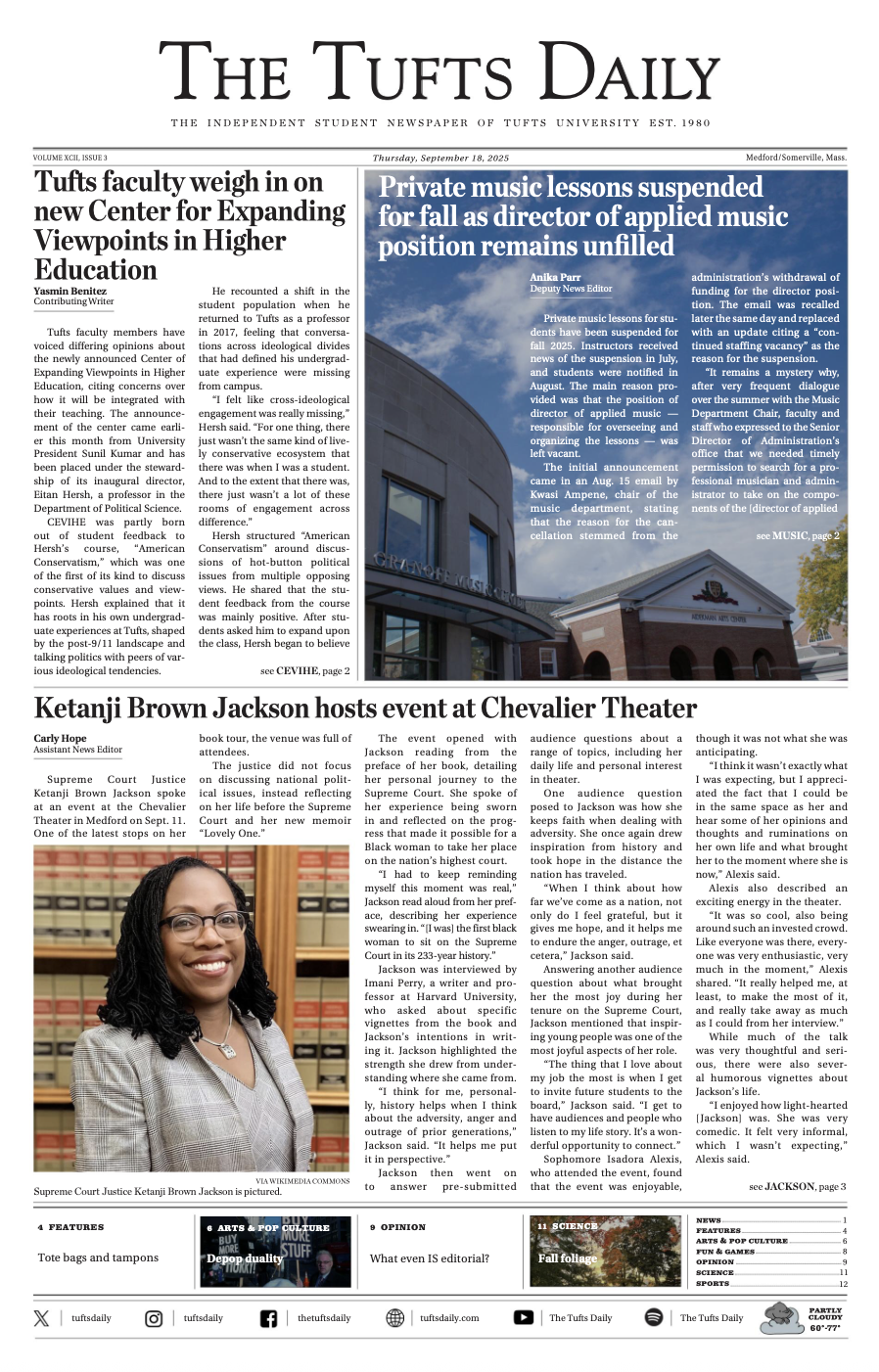Sometime in March, someone on X, formerly known as Twitter, tweeted their enthusiasm at a fancast for a live action remake of “Tangled.” The tweet speculated that actors Avantika Vandanapu (of the feature musical adaptation of “Mean Girls”) and Milo Manheim (of the Disney Channel “Zombies” movies) had been cast in the alleged remake and was followed by edits of this potential cast. It wasn’t long before loyal stans came crawling out, ready to cast aspersions and wave the infamous “this isn’t what happened in the original material” flag. Vandanapu’s social media was flooded with angry comments, and people took to TikTok to express their discontent — all because of one tweet.
Sometimes I wonder if we remember: a) It’s just a story and b) It’s not even official. It is shocking — and a little alarming — to see how incensed people became at a fancast. Considering that Rapunzel inherits powers from a magic flower, heals someone with a tear and has around 70 feet of hair on her head, why is this where one should draw the line at interpretation? One TikTok user posted a video captioned, “Sorry but a brown girl with long black hair is NOT rapunzel.” Is Rapunzel in the room with us? Has she transcended the pages of her fairytale into reality to proclaim that we must cease to use our imaginations, and that only one idea of her can exist?
The issue of “inauthentic casting” has been a potent argument in pop-culture discourse in recent years. Whether it was widespread objections to elves of color in “The Rings of Power” or outrage at Halle Bailey taking on the role of Ariel in “The Little Mermaid” (2023), it has usually resulted in an outpouring of grievances united in a common racial overtone. Is it really a desire for movies to maintain loyalty to source material that motivates such complaints? More often than not, it is usually an excuse for dismayed netizens to air their racist opinions hiding behind their statuses as devoted fans. I also personally feel that diverse casting can help encourage conversations regarding the legacies of inauthentic or harmful representation. For example, J.R.R. Tolkien overtly drew on stereotypes of Asians for his orcs. Casting Asians in more fleshed-out and varied roles in the TV adaptation of “The Lord of the Rings” thus allows watchers to imagine them in a new light and addresses this offensive characterization.
I’d also like to add here that for the most part, South Asia’s representation in the Disney animated canon has been largely restricted to the exoticized woods of “The Jungle Book” and Agrabah in “Aladdin,”a place that some have assumed I am familiar with, given my Indian roots, and have even asked me whether I have visited it). I’m a fan of “Aladdin” for many reasons, but its cultural mishmash of the Middle East and South Asia is not one of them. In an ideal world, I’d love to see what an intercultural version of Tangled would look like.
All this being said, I do feel it is important to write new narratives, authentically rooted in cultures and histories, rather than reworking old ones. Sure, it’s great to see novel representations of old stories in the mainstream so that new generations can grow up seeing themselves centered in these tales as well, but nothing can beat an entirely new story. One only has to look at the impact of “Encanto” to understand the potential of an authentic effort. The product of the collective creative genius of Jared Bush, Byron Howard, Charise Castro Smith and Lin-Manuel Miranda, the film was a breath of fresh air. With a killer soundtrack and a host of intriguing characters, the movie delved into surprisingly complex themes (such as familial trauma and belonging) effortlessly, with just the right amount of magical realism. Encanto’s footprint is not limited to covers of the eternally catchy “We Don’t Talk About Bruno” either; a heartwarming video on social media that eventually ended up on Good Morning America showed a girl pointing to the movie’s protagonist, Mirabel, on TV and identifying their similarities.
I’d be happy to see Vandanapu’s singing chops take on “I See the Light” anytime. But I’m more excited to see her in the upcoming Disney+ adaptation of Roshani Chokshi’s “A Crown of Wishes.” Chokshi’s book infuses a conventional Young Adult narrative style with elements of Hindu mythology, and the result is a delight. Vandanapu’s talent endures regardless of any contentions on the topic of fancasting. Stay pressed, I guess.






